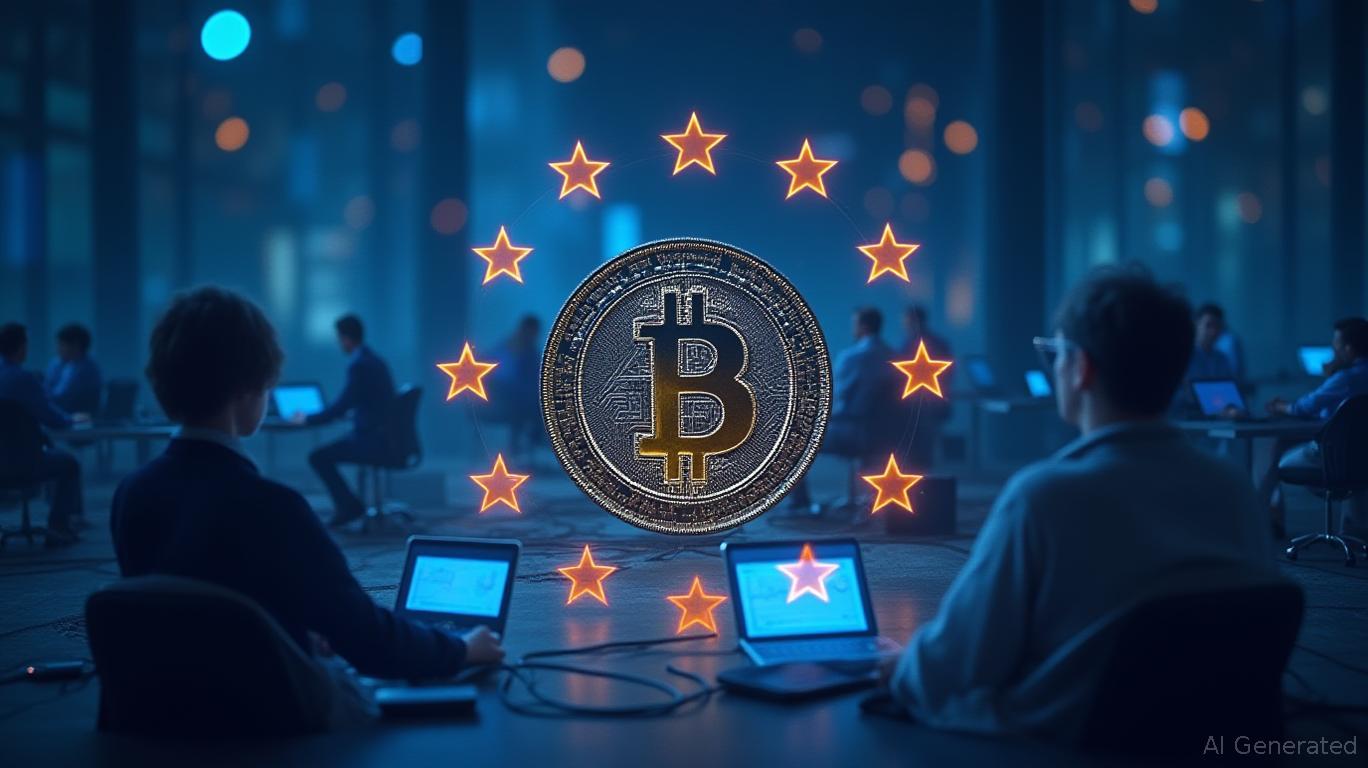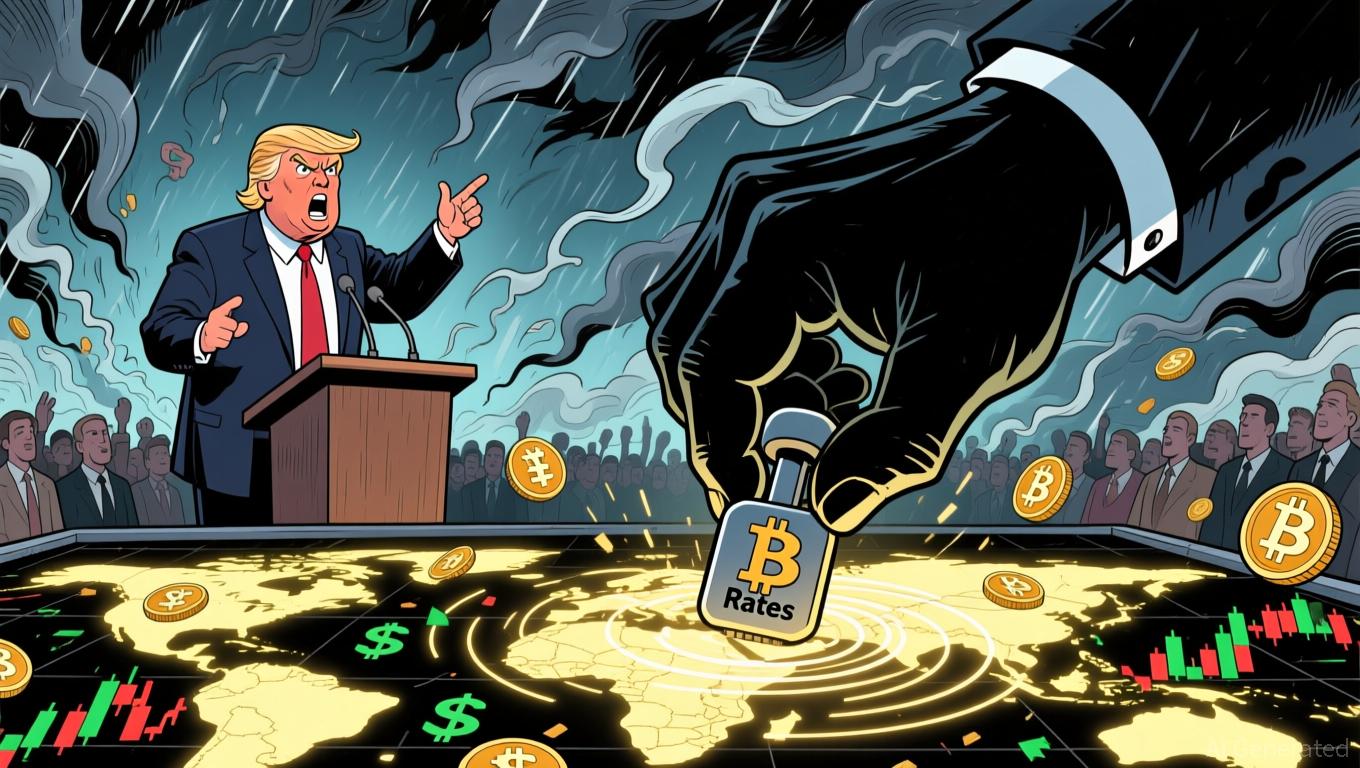Fragmented regulations across the EU allow 100 individuals to lose €100M to a crypto scam
- European police dismantled a €100M crypto fraud network affecting 100+ victims across 23 countries via fake investment platforms. - Scammers used Lithuanian bank accounts to launder funds, exploiting jurisdictional gaps in fragmented EU crypto regulations. - The six-year scheme exposed systemic weaknesses in investor protections and cross-border financial oversight. - International collaboration between Eurojust, Europol, and six nations led to arrests and asset freezes, highlighting ongoing crypto crime

A joint effort by European law enforcement agencies has broken up a cryptocurrency investment scam that targeted over 100 individuals in 23 different countries, resulting in losses of at least €100 million. The investigation, which began in 2018, was coordinated by Eurojust and received support from Europol. Authorities in Spain, Portugal, Italy, Romania, Bulgaria, and Lithuania carried out simultaneous arrests and asset seizures. Five people were taken into custody, and several bank accounts were frozen during the operation.
The criminals behind the scheme set up convincing fake crypto investment websites, luring victims with promises of substantial profits. When investors tried to retrieve their money, they were hit with extra charges, only for the platforms to vanish soon after. The stolen money was funneled through Lithuanian banks, taking advantage of regulatory loopholes and the international nature of Europe’s financial system. The scam’s persistence for more than six years exposed weaknesses in regulatory consistency and highlighted the lack of strong protections for crypto investors.
This crackdown required extensive international cooperation. Eurojust established a Joint Investigation Team (JIT) between Spain and Lithuania, while Europol contributed intelligence and operational assistance. Law enforcement executed searches in five different countries, confiscating digital assets and financial documents. The operation demonstrates the increasing complexity of crypto-related fraud, where criminals exploit legitimate financial systems to hide illegal proceeds. This case is part of a broader pattern in 2025, including the disruption of a $460 million crypto scam in Spain and a $540 million laundering network affecting 5,000 victims.
The effects of the fraud were widespread throughout Europe, with the majority of victims located in Germany, France, Italy, and Spain. According to the U.S. Federal Trade Commission, investment scams rose by 25% in 2024, leading to $5.7 billion in losses, highlighting the global reach of crypto fraud. The European incident further demonstrates the difficulties in tackling digital asset crimes, as offenders take advantage of cryptocurrency anonymity and inconsistent regulations. Lithuania’s role as a laundering center was due in part to its financial system’s limited ability to monitor international crypto transactions.
Experts point out that this case reveals fundamental flaws in the cryptocurrency market. Inadequate trust systems, scarce insurance coverage, and slow regulatory responses make it easier for scams to thrive. While the dismantling of this network shows that international collaboration can disrupt criminal operations, it also emphasizes the urgent need for stronger regulatory measures. As Eurojust observed, the patchwork of national laws continues to benefit scammers, allowing them to operate across borders with little oversight.
Despite the operation’s achievements, concerns about future crypto-related crime persist. The U.S. Federal Trade Commission reported a record $12.5 billion in fraud losses in 2024, with $5.7 billion attributed to investment scams. Europol’s SOCTA 2025 report also identified cryptocurrencies and decentralized finance (DeFi) as major drivers of modern financial crime, with criminals quickly adapting to new technologies. Although the European crackdown is a significant step, it serves as a reminder that the crypto industry remains risky for investors, demanding vigilant regulation and robust institutional safeguards to prevent further fraud.
---
Disclaimer: The content of this article solely reflects the author's opinion and does not represent the platform in any capacity. This article is not intended to serve as a reference for making investment decisions.
You may also like
Chainlink's cross-chain bridges drive a $35 billion boom in tokenized finance
- Grayscale files to convert its $29M Chainlink Trust into a staking-enabled ETF (GLNK), positioning LINK as crypto infrastructure. - Chainlink's CCIP bridges traditional finance and blockchain via cross-chain interoperability, recently collaborating with J.P. Morgan and Ondo Finance. - The tokenized assets market is projected to grow to $35B, with Chainlink addressing compliance and data transfer challenges in decentralized finance. - Strategic integrations with S&P Global and Bittensor's AI networks high

Bitcoin Updates: Trump Urges Rate Cuts While Fed Remains Cautious—Bitcoin Drops Into Bear Market
- Trump pressures Fed for aggressive rate cuts, joking about firing Bessent if rates remain high, risking policy instability. - Bitcoin enters "most bearish" phase with Bull Score at 20/100, price below $102,600 as institutional demand wanes. - Fed chair replacement process nears conclusion, with potential impacts on crypto markets and global capital flows. - India debates stablecoin regulation while Leverage Shares plans 3x crypto ETFs, reflecting volatile market dynamics. - Bitcoin's $200,000 trajectory

Fed's Change in Liquidity Fuels Debate: AI Breakthrough or Speculative Frenzy?
- The Fed's halt of QT by December 1, 2025, risks injecting trillions into AI markets, reigniting speculative concerns amid record $57B Nvidia quarterly revenue. - AI infrastructure spending surges with FEDGPU's GPU clusters and Gartner projecting $2 trillion global AI spending by 2026. - Skeptics warn of debt-driven overinvestment, citing Meta/Oracle stock declines and unproven economic returns despite "depth and breadth" of AI innovation claims. - Historical parallels to the dot-com bubble emerge as anal

XRP News Today: Grayscale’s Altcoin ETFs Transform Market Liquidity, Connecting Digital Assets with Conventional Finance
- NYSE approves Grayscale's XRP and Dogecoin ETFs for Nov 24 trading, expanding regulated crypto access in the U.S. - ETFs convert private trusts to public structures under SEC's post-shutdown regulatory clarity, targeting major altcoins. - Products charge 0.35% fees with direct asset holdings, attracting $12.7B XRP and $7.2B Dogecoin derivatives pre-launch. - Competitors like Bitwise and Franklin Templeton also launch XRP ETFs, signaling growing institutional confidence amid Bitcoin outflows. - Regulatory
